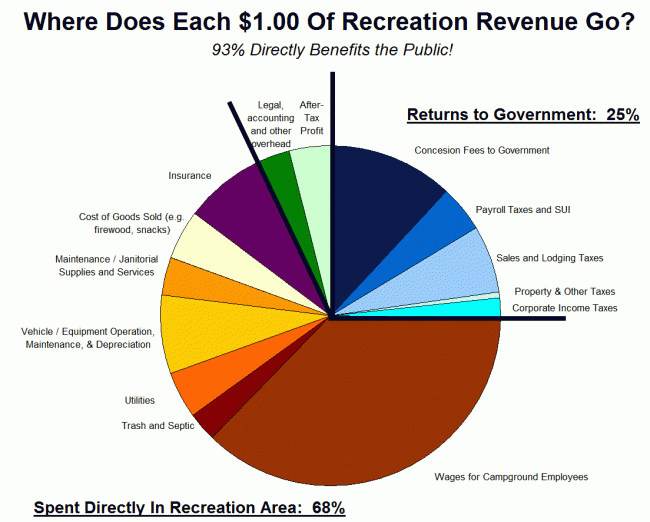More on the Government Shutdown and Keeping Parks Open
I discussed the shutdown and its effects on the parks my company operates here (spoiler: all are still open). Shawn Regan of PERC has a good article in the National Review on the same subject:
....under new shutdown guidelines established by the Trump administration, our parks have been rightfully spared from serving as pawns in Washington’s partisan budget battles as they did in the past.
Under a contingency plan created by the administration, park officials are allowed to keep sites accessible to visitors during the shutdown with skeletal staffs, rather than being forced to close them as was the case during the 2013 government shutdown presided over by President Obama. That means many important visitor activities and park operations — from snow-coach rides in Yellowstone run by private concessionaires to guided battlefield tours of Gettysburg — can continue yielding economic benefits for the surrounding communities. This week, the National Park Service also announced it will begin tapping unspent visitor-fee revenues to bolster operations at some parks.
These new plans are attracting criticism in the familiar anything-Trump-does-must-be-bad vein. Theresa Pierno of the National Parks Conservation Association slammed the administration’s decision to keep parks open, calling it “unrealistic and dangerous,” even though the NPCA repeatedly called for parks to be reopened during the 2013 shutdown. Representative Raúl Grijalva, the new Democratic chairman of the House Natural Resources Committee, pledged to hold hearingson the administration’s decision to support park operations with fee revenues....
The Trump administration’s approach is sensible. Why unnecessarily ruin visitors’ plans or jeopardize the millions of dollars in revenue that local communities receive from park visitation? If visitation begins to pose significant health or safety concerns, the contingency plan gives park superintendents the option to close areas or shut down parks entirely, as some parks have already done.
He goes on to make the very logical point that the vast majority of BLM lands and US Forest Service lands -- whose acreage dwarfs that under management by the National Park Service -- mostly all remain open in every shutdown. The large amounts of government staffing on NPS lands are needed to handle large visitor concentrations in small areas, something that really is not an issue in most parks in January.
Folks who have been hunting for pictures of overflowing trash cans to paint the current opening of parks as a bad idea could find just as many in the summertime on government lands when the government is not shut down. Remember, for all the love folks want to throw at the National Park Service at these times, it is an agency that has allowed many of its parks to fall apart, with perhaps $20 billion in deferred maintenance and very little new investment in the modern infrastructure visitors are demanding. And it has a labor model that is well suited to counting wolves but poorly suited to efficiently cleaning bathrooms and emptying trash cans even when the government is open. This shutdown is the least of the problems faced by public recreation lands.
I think people get confused about the purpose of the government shutdown. It is not a punishment, or a timeout, meted out by the law when Congress can't agree on a budget. It is a mechanical (and logical) requirement that spending on certain activities stop when that spending is no longer legally authorized. The media acts like it is supposed to be painful, and that Trump is somehow breaking the rules by making it less so. I often criticize this President, but this is one area Trump should be applauded. I think the wall funding issue is a dumb reason to go into budget gridlock, particularly when he had 2 years of Republican Congresses to get this done, but given the fact of the shutdown he should be applauded for attempting to reduce its impact on ordinary Americans. President Obama, for all his reputation of caring and hope, was to my mind overly callous in explicitly trying to make the shutdown more painful for average people.


